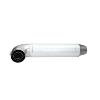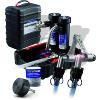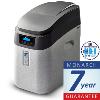- Boilers & Spares
- Boilers
- Boiler Spares
- Alpha Boiler Parts
- Ariston Boiler Parts
- Baxi Boiler Parts
- Biasi Boiler Parts
- Chaffoteaux Boiler Parts
- Ferroli Boiler Parts
- Gledhill Boiler Parts
- Glow Worm Boiler Parts
- Heat Line Boiler Parts
- Ideal Boiler Parts
- Intergas Boiler Parts
- Keston Boiler Parts
- Main Boiler Parts
- Megaflo Boiler Parts
- Potterton Boiler Parts
- Ravenheat Boiler Parts
- Remanufactured Boiler Parts
- Remeha Boiler Parts
- Saunier Duval Boiler Parts
- Vaillant Boiler Parts
- Viessmann Boiler Parts
- Vokera Boiler Parts
- Worcester Boiler Parts
- Boiler Flues And Accessories
- Heat Pump Water Heater
- Boiler Spares By Type
- Heating
- Boiler Protection Filters
- Carbon Monoxide Alarms
- Central Heating Controls
- Central Heating Pumps
- Expansion Vessels
- Gas Products
- Polyplumb
- Radiators
- Caleffi Temperature Pressure Relief Valve
- Bathroom & Kitchen
- Aqualisa Showers
- Bathroom Taps
- Kitchen Taps
- Shower Pumps
- Towel Rails
- Water Softeners
- Test Equipment
- Multimeters
- Thermometers
- Miscellaneous
- Consumables
- Tools
- Information
- Aquabion Water Softener
- Boiler Manuals and Litreature
- News
- Newsletter
- FAQ
- Services




- Millbrook Distribution & Spares Ltd
- Aquatech House, Unit 2 Burnham Way
- Off Kangley Bridge Road
- Sydenham, SE26 5AG
- Phone - 0208 778 2887
Best Sellers
New Products
Copyright © 2012 - Millbrook Distribution & Spares Ltd




